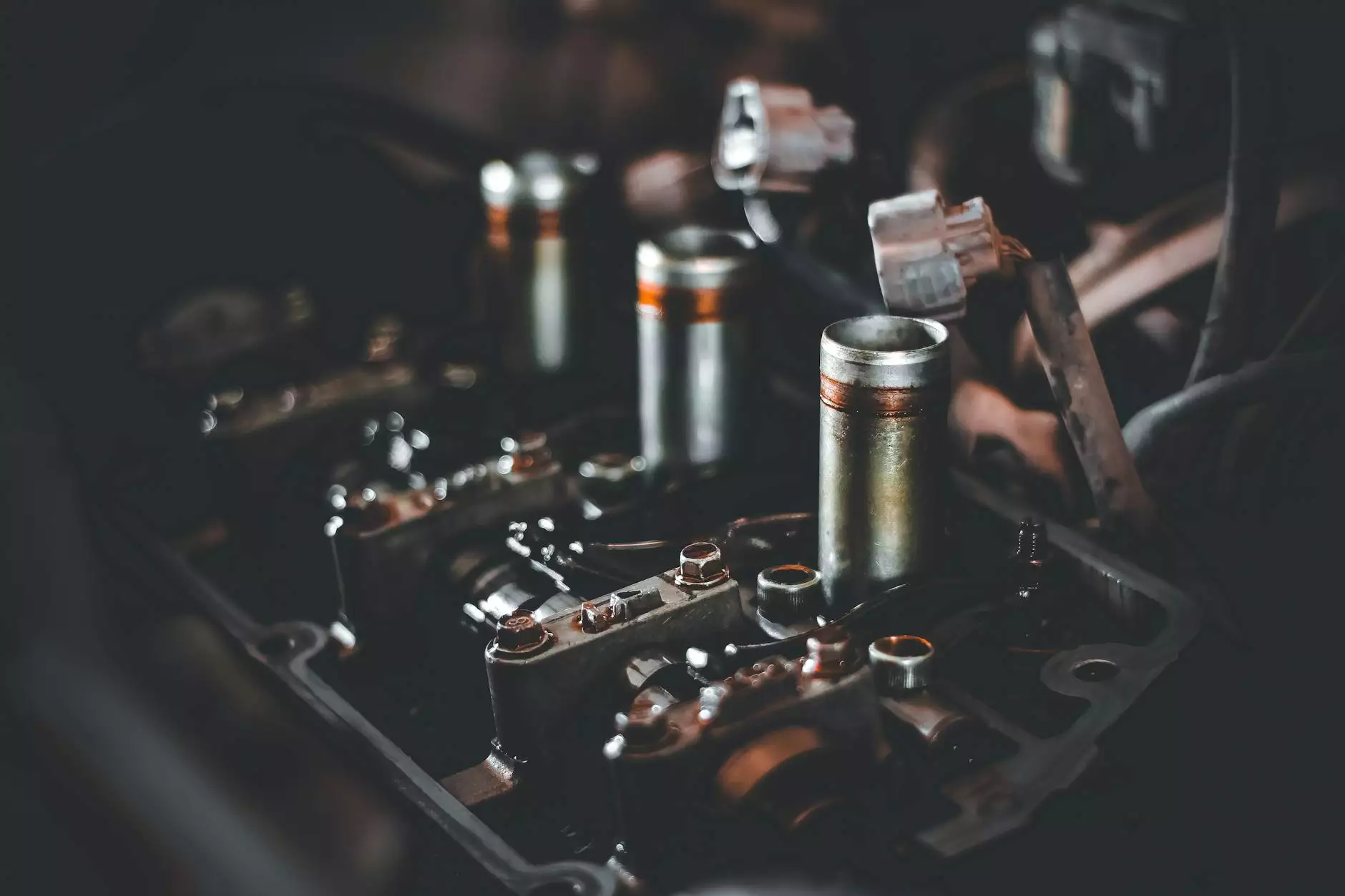Understanding Automatic Gearbox Converters: Everything You Need to Know

The automotive industry has undergone remarkable changes over the years, particularly in the area of transmission systems. One of the key innovations that have transformed how vehicles operate is the automatic gearbox converter. This crucial component plays a significant role in enhancing vehicle performance, improving fuel efficiency, and providing a smooth driving experience. In this article, we will delve deep into the world of automatic gearbox converters, exploring their functionality, benefits, common issues, and much more.
What is an Automatic Gearbox Converter?
An automatic gearbox converter, often referred to as a torque converter, is a type of fluid coupling used in automatic transmissions. It serves as a link between the engine and the transmission, enabling the transfer of power smoothly without the need for manual gear shifting. This innovative technology allows for a seamless transition in power delivery, which is essential for the performance of modern vehicles.
How Does an Automatic Gearbox Converter Work?
The operation of an automatic gearbox converter can be broken down into a few essential components:
- Stator: The stator redirects transmission fluid back to the pump, enhancing efficiency.
- Pump: The pump, driven by the engine, circulates transmission fluid within the converter.
- Turbine: The turbine absorbs the fluid from the pump, converting hydraulic energy into mechanical energy that drives the vehicle.
When the engine runs, the pump spins and creates a flow of transmission fluid that moves toward the turbine. The turbine, connected to the transmission, spins as the fluid hits its blades, leading to the execution of power transfer. The integrated automatic gearbox converter allows the vehicle to accelerate smoothly while allowing for optimal fuel efficiency, even during stops.
Benefits of Automatic Gearbox Converters
Utilizing an automatic gearbox converter in vehicles provides numerous advantages:
1. Smooth Power Delivery
One of the most significant benefits of an automatic gearbox converter is its ability to provide smooth power delivery. Unlike manual transmissions where shifting can be abrupt, torque converters allow for gradual acceleration and deceleration, enhancing the overall driving experience.
2. Improved Fuel Efficiency
Modern automatic gearbox converters are designed to improve fuel efficiency. They allow the engine to operate at lower RPMs during cruising, which can lead to significant savings in fuel consumption, particularly on long drives.
3. Enhanced Vehicle Performance
Vehicles equipped with automatic gearbox converters generally exhibit better performance characteristics. These converters can adapt to the driving conditions, offering power to the wheels without lag, which is particularly beneficial in heavy traffic or during acceleration.
4. Reduced Driver Fatigue
Driving an automatic vehicle is often less demanding than a manual transmission, particularly in stop-and-go traffic. The automatic gearbox converter allows the driver to focus more on the road rather than constantly shifting gears, thus reducing fatigue.
Common Issues with Automatic Gearbox Converters
Despite their advantages, automatic gearbox converters can experience issues over time. Being aware of common problems can help in diagnosing and rectifying faults early:
1. Slipping Transmission
If the transmission slips or shows inconsistent shifts, it could indicate problems with the automatic gearbox converter. This may stem from a lack of fluid pressure or degraded transmission fluid.
2. Overheating
Overheating is a common issue with automatic gearbox converters. This can lead to fluid breakdown and decreased performance. Regular maintenance and checking fluid levels can help prevent this problem.
3. Fluid Leaks
Fluid leaks can arise from worn seals or gaskets. It’s vital to address any fluid leaks immediately, as low fluid levels can severely impact the operation of the gearbox converter.
Maintenance Tips for Automatic Gearbox Converters
To ensure the longevity and efficiency of your automatic gearbox converter, regular maintenance is crucial. Here are some tips to keep in mind:
1. Regular Fluid Checks
Checking the transmission fluid regularly is essential. Ensure that the fluid is at the proper level and has the appropriate color and texture. If the fluid appears burnt or gritty, it's time to change it.
2. Periodic Fluid Changes
Changing the transmission fluid periodically can help maintain the health of your automatic gearbox converter. Refer to the manufacturer's recommendations for service intervals.
3. Address Leaks Promptly
Should you notice any fluid leaks, get them inspected and repaired promptly. Keeping the transmission fluid at the correct level is paramount for the proper functioning of the gearbox converter.
Choosing the Right Automatic Gearbox Converter
When it comes to selecting the right automatic gearbox converter for your vehicle, consider the following factors:
1. Compatibility
Make sure that the converter you are considering is compatible with your vehicle's make and model. Each vehicle may have specific requirements which should be followed to maintain optimal performance.
2. Quality of the Component
Prioritize quality over price when choosing a gearbox converter. Higher-quality converters may have a higher upfront cost but can save you money on repairs and maintenance in the long run.
3. Reviews and Recommendations
Consult reviews and recommendations from other users to gauge the reliability of various gearbox converter brands. Look for feedback on durability, performance, and overall satisfaction.
The Future of Automatic Gearbox Converters
The automotive industry continues to evolve, particularly with advancements in technology. The automatic gearbox converter is no exception. Here are some trends we can expect to see:
1. Enhanced Efficiency
Future automatic gearbox converters will likely incorporate more advanced technologies that improve efficiency and responsiveness. This may include adaptive systems that tailor performance based on driving habits.
2. Integration with Electric Vehicles
As electric vehicles become more popular, the role of automatic gearbox converters will also evolve. Manufacturers are already exploring ways to integrate traditional gear conversion methods with electric drivetrains for optimal performance.
3. Increased Use of Lightweight Materials
In efforts to improve fuel economy and performance, the use of lightweight materials in gearbox converters is likely to increase. This shift will contribute to better fuel efficiency and reduced emissions.
Conclusion
The automatic gearbox converter is an essential component in modern vehicles, enhancing performance, efficiency, and driving comfort. With continuous advancements in technology and engineering, the future of gearbox converters looks promising. By understanding how they operate, their benefits, and maintenance procedures, vehicle owners can ensure their cars run optimally for years to come.
For high-quality automatic gearbox converters, auto parts, and supplies, visit shenghaiautoparts.com. Access a wide range of automotive components designed to elevate your driving experience.









